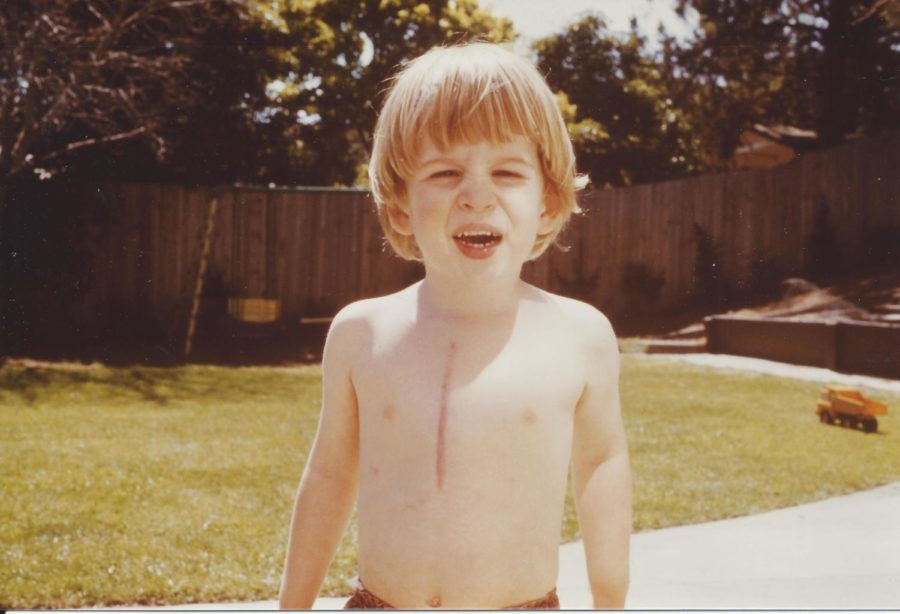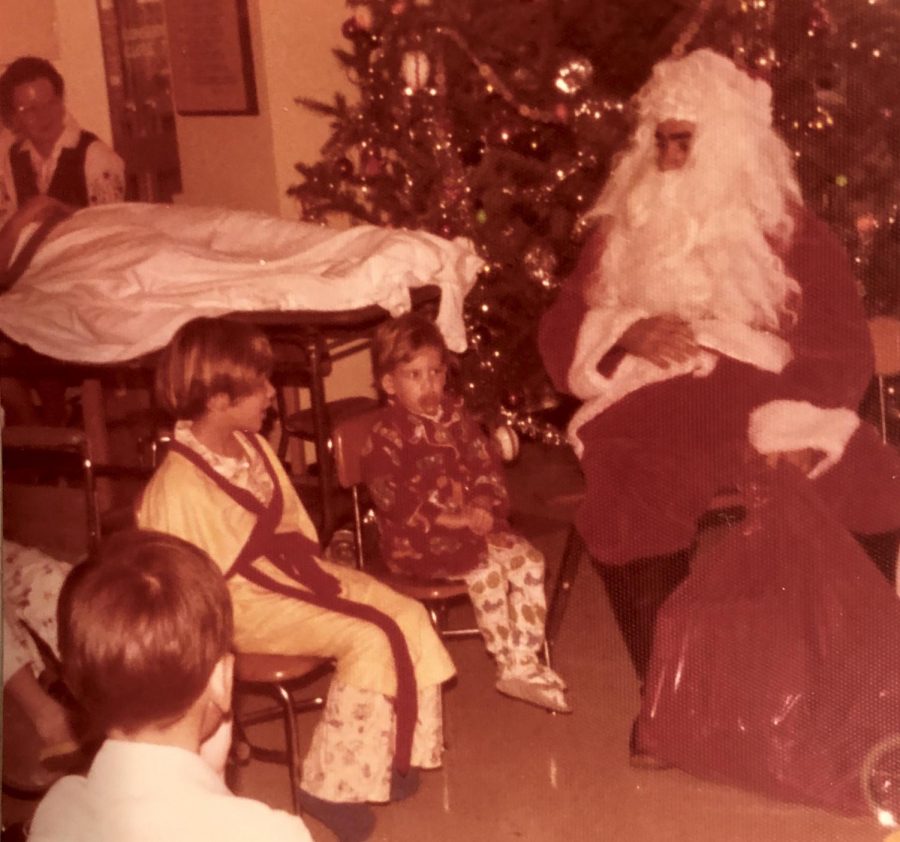Shortly after Cyl Beresford gave birth to her son, the baby was swept away into countless tests with the only report of heart murmurs that may or may not go away.
Bryan Beresford was born with five defects in his heart, four of which aligned with tetralogy of fallot, a rare heart disease found most commonly in newborns. In 1972, this was a death sentence.
They found a quarter-sized hole between his right and left ventricles and a dime-sized hole between his left and right atrium. Next to the typical defects presented from tetralogy of fallot, Beresford also suffered from symptoms of overriding aorta and right ventricular hypertrophy.
“I didn’t know or understand what was going on, so I had to read up and learn a lot from doctors. At the time I had his sister who was three years older and then his dad who was not too well so it made it kinda tough. I couldn’t fall apart,” Cyl Beresford said.
When all seemed hopeless, a new opportunity arose: the chance of a heart transplant. Although this seemed like a miracle, it wasn’t a common surgery at the time, especially on younger children. The chances of success seemed low, but they saw no other option. This is when they were introduced Dr. Norman Shumway.
Well known among many doctors at the time, Shumway was the first surgeon to achieve a successful heart and lung transplant. Shumway was also the only surgeon who was performing heart surgeries on small children at the time, as Bryan was only around 2-years-old. Although nervous about the operation, Shumway’s success left them feeling more at peace.
“Dr. Shumway was like a miracle worker to families because when I moved to California from back east, there was only one surgeon. I was lucky to get to work so closely with him as I was one of his residents,” said Joanne Hendricks, a cardiovascular nurse manager who worked under Shumway.
Anticipation rose for the long-awaited surgery as they had to wait until he was older in order for the success rate of the surgery to rise. Nights in the hospital got increasingly harder as Bryan Beresford’s physical health slowly depleted, and his mother’s sleep deprivation rose.
“He was in and out of the hospital a lot until then, and I was there so much that the doctors thought I worked there. He never slept through the night at all until the surgery, and I would have to get up and go, and he would be blue,” Cyl Beresford said.
Despite his young age, Bryan Beresford can recall the event nearly word for word.
“I was scared because I didn’t know or understand what was happening to me. I could hear the doctors talking in the background with my mom while I just laid there. They tried to explain the surgery to me, but I didn’t understand, I just knew I wanted to feel better,” Bryan Beresford said.
The operation lasted around six hours, and Cyl Beresford sat anxiously in the waiting room, hoping for news of success.
“I was right there the whole time with his dad, who was in a wheelchair. I was worried, nervous, upset, and just hoping for the best. Once I heard the surgery was over I had major relief. We weren’t 100% sure that everything was going to be okay, the surgery was over, and the nurses were optimistic but still cautious. We had to wait for a, b, and c to happen, and then they did happen, and he was okay,” Cyl Beresford said.
Cyl Beresford was finally reunited with her son; however, the damage done by the surgery made him nearly unrecognizable. He was bloody and bruised, with an open wound running down his chest. Despite all of this, she could still see her son under all the tubes and wires, which brought a smile to her face.
“As warned the night before the surgery, I didn’t recognize Bryan after he came from the operating room to ICU. The doctors were not kidding when they said he would look like he was run over by a truck — all bruised and swollen with tubes and wires attached everywhere possible,” Cyl Beresford said.
Although it was tough to see her son in such a vulnerable position, just knowing that he made it through the surgery gave her hope that he could finally return home and have a speedy recovery. Even though the effects of his operation were potentially long term, the bulk of it was done.
“There was such major relief it’s hard to express. It’s something you hope and pray for, but you’re not 100% sure it’s going to be okay. It’s like climbing a mountain, let me say, Half Dome; it’s like you’re trudging up there and you get to the top, and you’re just like, ‘Oh my god I made it, oh my god he made it,'” Cyl Beresford said.
With Bryan Beresford’s surgery complete around the holidays, they were able to spend Christmas in the hospital with other patients going through a similar process. Although it was slightly saddening that they couldn’t spend the holidays at home, the joy from the recent successful surgery left them all content.
“He had to be in the hospital for at least a week or more post-op. I was really delighted and so happy he was alive, but on the other side he had all these tubes and they had to do all these tests, and sometimes his heart would stop and then it would jump up again. I mean, it wasn’t simple, but you know what? He recovered,” Cyl Beresford said.
As more time passed, the Cyl Beresford’s joy kept on increasing as she watched her son heal. He was no longer confined to a hospital bed or locked in his room at home. He was able to leave the house and run around with his friends like the other kids his age.
“I don’t know about him, I’m sure he enjoyed being back in his bed, but I enjoyed not having to be up all night with him because he was screaming because he couldn’t breathe. I still went to check on him all the time to make sure he was still breathing, but it was a major relief and I just couldn’t believe we had gotten over that big hurdle. From then on, it was just continual improvement to the point where nobody would’ve known except for the doctors,” Cyl Beresford said.
Around 20 years later, Bryan Beresford had to return for a follow-up heart surgery. Although less stress-inducing than the first one, Cyl Beresford was still concerned about the possible outcomes.
“It was stressful but totally different from the first one. He was grown up now rather than being a little 2-year-old baby who screamed and cried all the time. He was an adult now and he was a good patient. Since he was older, it was much easier on me as I did not feel as responsible,” Cyl Beresford said.
Although she had some more confidence in this surgery than the first, Bryan Beresford took a much more fearful approach to this one as now he had a full grasp on life and what was going on.
“I was nervous. I figured, ‘What is the probability that I’m gonna survive both surgeries? Probably not likely.’ At the same time though, I was much more knowledgeable on the defects, and I had a better understanding of what was going on. I knew that even though I was scared, I needed to get it done,” Bryan Beresford said.
It was a long and painful road to recovery, but Cyl Beresford stayed by her son’s side the whole time.























